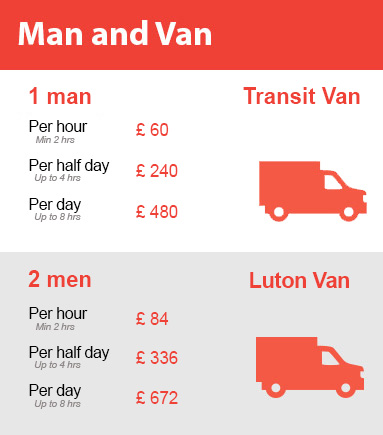Why moving a piano alone is a risky endeavor
Posted on 21/05/2025
Why Moving a Piano Alone Is a Risky Endeavor
Relocating to a new home or rearranging your living space can be an exciting experience. However, when you own a piano--one of the most intricate and cherished musical instruments--moving it becomes a task that calls for special attention and expertise. Many homeowners wonder: Is it safe to move a piano by myself? In this comprehensive guide, we delve into why moving a piano alone is a risky endeavor and outline the dangers, complexities, and best practices associated with piano relocation.

Understanding the Complexity of Piano Moving
Pianos are not ordinary pieces of furniture. From compact uprights to magnificent grand pianos, these instruments are masterpieces of engineering, often containing more than 10,000 moving parts. Moving a piano involves far more than brute strength; it requires precise handling, planning, and understanding of its unique structure. Below, we explore the various factors that make moving a piano by yourself a potentially dangerous mission.
1. The Sheer Weight and Size of Pianos
- Upright pianos typically weigh between 300 and 500 pounds.
- Baby grand pianos can weigh anywhere from 500 to 800 pounds.
- Concert grand pianos often tip the scales at over 1,200 pounds.
The massive weight of pianos makes them incredibly difficult to maneuver, especially through narrow doorways, staircases, or tight hallways. Attempting to move a piano alone significantly increases the likelihood of physical injury as well as potential damage to the instrument and your property.
2. An Awkward and Imbalanced Load
Pianos do not have a uniform weight distribution. Much of their mass is concentrated in specific sections--like the cast-iron harp in grands or the heavy back posts in uprights. Because of this, even simple movements can cause the piano to tip or shift unexpectedly. Managing this awkward, imbalanced load without assistance is not only frustrating but can also prove dangerous.
3. The Risk of Injury
Moving a piano alone is a risky undertaking primarily due to the risk of serious physical injury. Common injuries associated with solo piano moving include:
- Back strains and slips
- Crushed fingers or toes
- Knee and shoulder injuries
- Accidental falls and trips on stairs
Potential Damages When Moving a Piano Alone
1. Damage to the Instrument
Pianos are highly sensitive to shocks, vibrations, and sudden movements. Moving a piano yourself increases the likelihood of:
- Scratches and dents on the wood finish
- Broken legs, pedals, or music stands
- Cracked soundboards (which are expensive to repair)
- Internal damage to strings, hammers, or action parts
2. Damage to Property
Because of their size and weight, pianos can easily cause:
- Scratches or gouges on hardwood floors
- Damage to walls, door frames, and banisters
- Broken tiles or damaged stairs
3. Liability and Insurance Issues
When you hire professional piano movers, the company typically carries liability insurance to cover potential damages or injuries. However, if you damage your piano or property--or worse, hurt yourself--while moving a piano unaided, insurance may not cover these incidents. This means you could be left to foot the bill for medical service and repairs.
Technical Challenges in Piano Transport
1. Navigating Staircases and Tight Spaces
Many piano moving accidents happen on staircases. Safely navigating stairs requires a team effort and specialized tools such as moving straps, dollies, and padding. Working alone, you'll lack the control needed to maneuver the piano through turns and inclines, often leading to slips or falls.
2. Inadequate Equipment
Professional movers come equipped with the necessary gear to safely move a piano:
- Heavy-duty piano dollies
- Protective padding and blankets
- Skid boards for stair navigation
- Straps for secure lifting
3. Lack of Expertise
Professional piano movers are trained in the art of instrument transport; they understand how to disassemble, pack, and reassemble pianos of all shapes and sizes. Amateur efforts, even with good intentions, may result in costly errors like misalignment or lost parts.
Common Misconceptions About Piano Moving
"If I'm strong enough, I can move it myself."
Physical strength alone is not enough. The real challenge is coordinating movement while managing balance. As previously mentioned, pianos can shift or tip without warning.
"It'll be cheaper to move the piano myself."
While DIY may save on upfront labor costs, the risks of injury or damage almost always outweigh the initial savings. Repairing a damaged instrument or replacing broken flooring can be exorbitantly expensive.
"I can always find a strong friend to help."
Having a friend or two may help, but unless they have experience and know-how, the risks remain high. Nothing replaces professional expertise when it comes to transporting a valuable instrument like a piano.
The Psychological Toll of Moving a Piano Alone
Attempting to move such a significant and beloved instrument without help can lead to high levels of stress and anxiety. The constant fear of making a costly mistake can overshadow the excitement of a new home or studio space.
Time and Energy Drain
Moving a piano is both physically demanding and time-intensive. Working solo can leave you exhausted, frustrated, and with little energy for other moving tasks.
Best Practices for Safe Piano Moving
Hiring Professional Movers
The best way to avoid the risks associated with solo piano moving is to hire trained professionals, ideally those specialized in piano transportation. Not only will they possess the right knowledge and tools, but they will also take full responsibility for the safe passage of your prized instrument.
Proper Preparation
If you still decide to undertake the move yourself--preferably with multiple helpers--be sure to:
- Measure doorways, hallways, and staircases in advance
- Gather proper equipment (dollies, padding, straps, and ramps)
- Remove removable parts, such as the music stand and legs on a grand piano
- Wrap the piano in thick moving blankets to avoid scratches
- Plan your route and clear all pathways
The True Costs of Moving a Piano Alone
While the idea of saving money through DIY piano moving is appealing, the reality is that the hidden costs--injury, damage, lost time, and stress--often far outweigh the initial savings. The value of your safety and the preservation of your instrument should always be prioritized.
Peace of Mind
When you entrust your piano to professionals, you not only ensure that it arrives safely at its new destination, but you also enjoy peace of mind throughout the moving process. This allows you to focus on other aspects of your move, while knowing your prized instrument is in capable hands.

Frequently Asked Questions About Moving Pianos
Can moving a piano alone void its warranty?
In some cases, piano manufacturers or retailers require that the instrument is moved by authorized professionals to maintain its warranty. Always check with your manufacturer before moving.
How much does it cost to hire professional piano movers?
Moving costs depend on factors such as size, distance, and difficulty. While it may range from $200 to $1,000 or more, this investment ensures the safety of both your piano and your home.
What happens if my piano is damaged during a professional move?
Reputable moving companies carry liability insurance to cover damage or loss. Always verify insurance coverage prior to hiring any moving service.
Conclusion: Why Moving a Piano Alone Is Never Worth the Risk
Moving a piano by yourself is a risky endeavor that can lead to significant physical injury, irreparable damage to your valuable instrument, and substantial property loss. The intricate structure and considerable weight of pianos require expert handling, specialized equipment, and a team-based approach--qualities only professional piano movers can offer.
In summary, no cost savings are worth jeopardizing your health or the well-being of your piano. Always entrust your piano's relocation to experienced professionals to ensure a smooth, safe, and stress-free moving experience.
If you're considering a move and need to transport your piano, consult with a reputable piano moving specialist. Your instrument--and your back--will thank you.
Latest Posts
Innovative Techniques for Solo Heavy Lifting
Step-by-Step Guide to Packing Like a Pro for Moving House
Best Practices for Storing Dormant Freezers Safely





